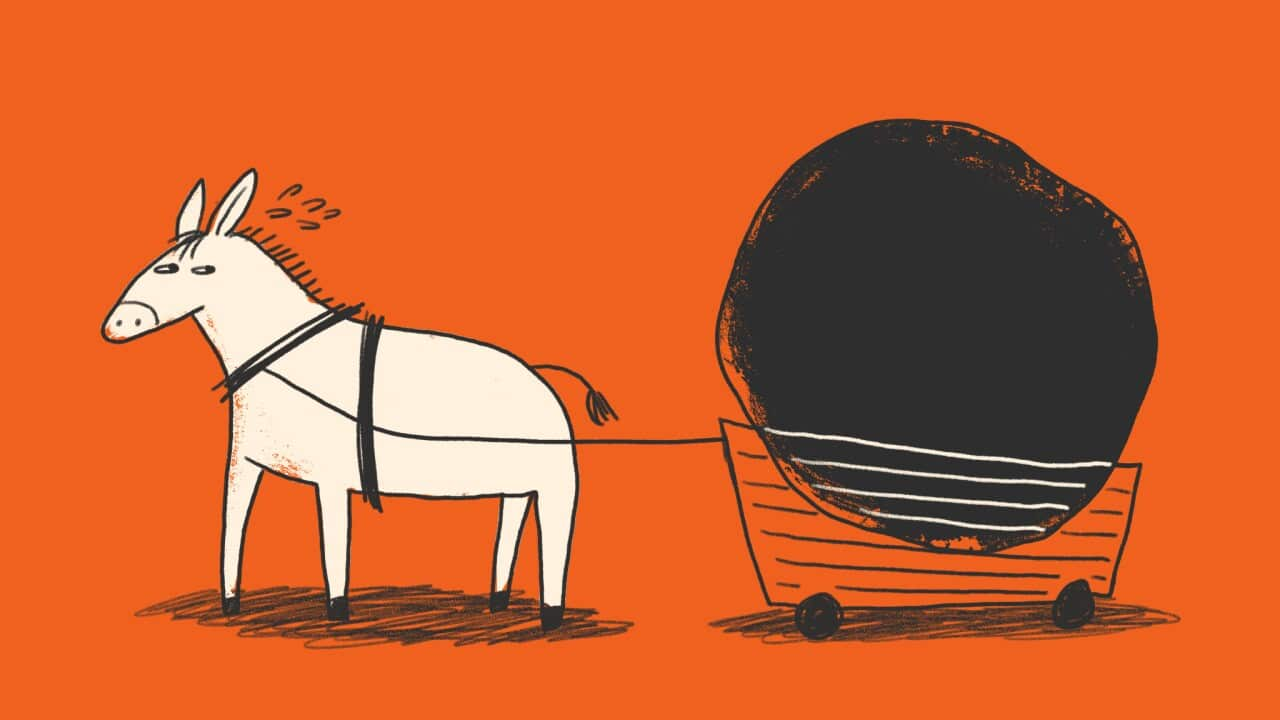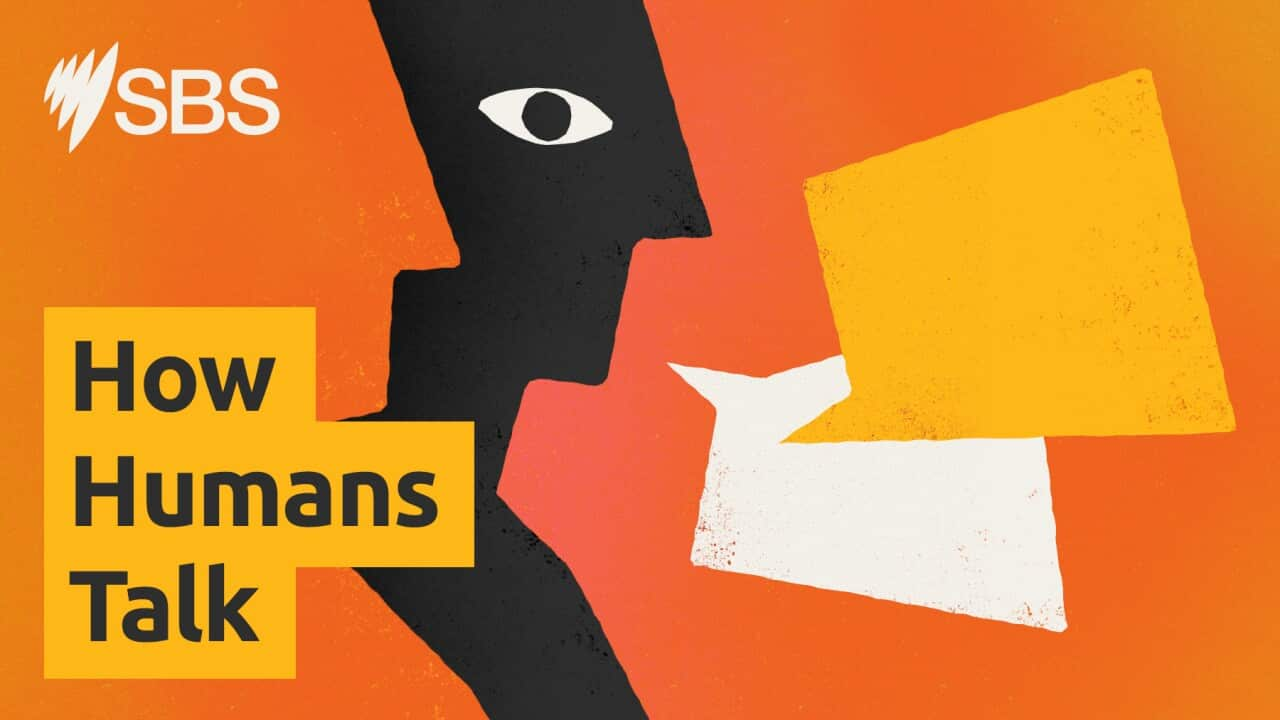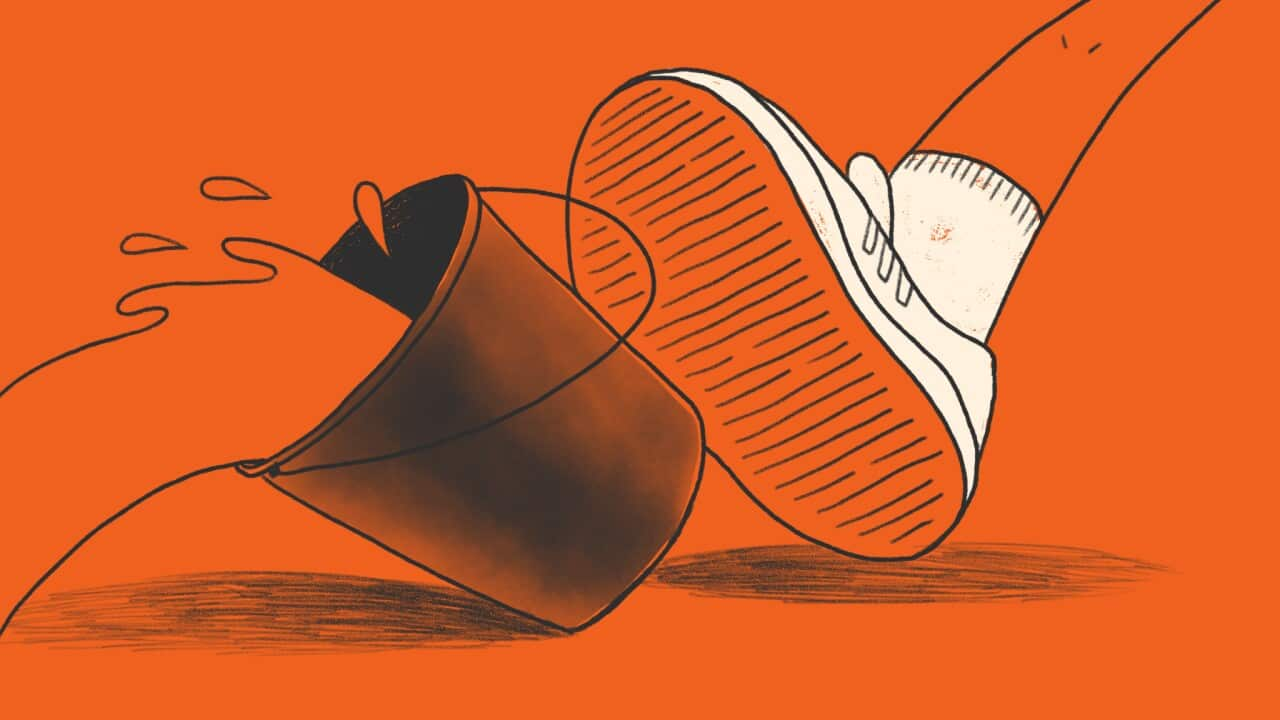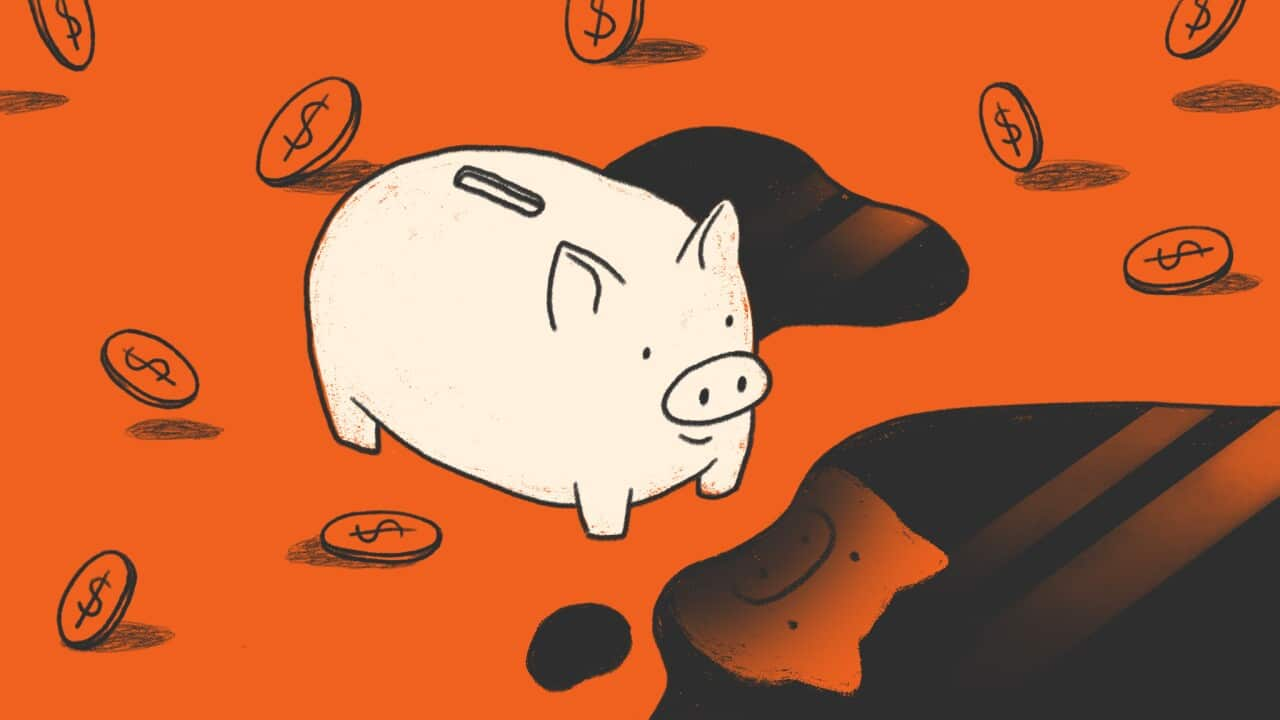This week Rune starts looking into the role that animals play in language, and quickly gets wound up by how we treat donkeys linguistically.
It might sound weird to obsess about the plight of the humble donkey. But think about it; Donkey work. Stubborn as a mule. Jackass...
Have you ever actually met a donkey? They really do get the ass end of the deal.
Our perceptions of donkeys as low status animals is a reflection of the powerful way that language and media shape our perception of the world and its creatures.
We can’t actually use the correct term for the donkey because it’s got so many negative connotations associated with it.Chase Day, Donkey Society of Victoria
In this episode, Rune talks to Chase and Keith Day from The Donkey Society of Victoria to try and turn this reputation on its tail.
The Idiom is a podcast about how language shapes the way we see the world and relate to each other. Follow the series in your podcast app to hear all the episodes.
The Idiom is an SBS Audio podcast produced by Think HQ CultureVerse. Get in touch at theidiom@sbs.com.au
- Host: Rune Pedersen
- Producers: Bridget Bourke, Jacob Aguis, Beaurey Chan, Stefan Delatovic, Mie Sorensen
- Writers: Rune Pedersen and Stefan Delatovic
- Art and design: Wendy Tang
- SBS team: Max Gosford, Joel Supple, Caroline Gates
- Guests: Chase Day, Keith Day, Howard Manns
- Other voices: Nicolas Ojeda Amador (Spanish speaker), David Heinrich (Lawyer 1), Brogan Palmer (Lawyer 2)
- Special thanks to The Donkey Society of Victoria and Jen Sharpe
Transcript
Rune Pedersen 00:00
To kick off this episode a little differently, here's Nicolas to give us an acknowledgement of country in Spanish
Nicolas 00:07
[RECORDING IN SPANISH]
We acknowledge the Traditional Owners of the land on which we work - the Yaluk-ut Weelam Clan of the Boon Wurrung, Naarm. We pay our respects to their Elders past, present and emerging as we try to live up to their example as storytellers.
Rune Pedersen 00:28
Thank you, Nic, so much for this beautiful Acknowledgement of Country in Spanish.
Nicolas 00:33
Con mucho gusto (pleasure is mine)
Rune Pedersen 00:34
For the longest time, I just could not get over the Australian idiom “we’re not here to Fuck spiders”. I mean, what do you even do with that? It's used to say, let's get down to business or let's stop wasting time on unimportant details. I felt like it said so much about Australian culture. This place full of foul mouthed larrikins and a terrifying animals finding joy in just a bit of obscene language. But then I remembered that back home in Denmark, we say “Det er noget flueknepperi “ , “that some fly fucking” when people are a little bit too nitpicky. So, I suppose we're not too different after all.
Look, I know curiosity killed the cat. But all this made me wonder, why are there so many animals in our idioms? And why do some animals get such a bad rep? I thought I'd take the bull by the horns and find out.
Lawyer 1 01:30
Okay, Your Honour. On behalf of the animal kingdom, we object to our characterisation through the use of human idioms.
Rune Pedersen 01:39
Proceed. But I warn you, No wild goose chases.
Lawyer 1 01:45
Now look here, snake in the grass. Why is that used to mean sneaky? That's just a reptile enjoying the sunshine?
Lawyer 2 01:55
Objection, snakes hide and freak us out.
Rune Pedersen 01:59
Sustained.
Lawyer 1 02:00
Okay, how about elephant race? That's when one truck tries to pass another but it's not fast enough and it blocks the highway. Why is that an elephant's fault?
Lawyer 2 02:13
Objection. That's mostly an English thing. And elephants lumber around.
Rune Pedersen 02:17
Overruled.
Lawyer 1 02:20
They said overruled buddy.
Rune Pedersen 02:22
Oh, I wouldn't count your chickens if I were you.
Lawyer 1 02:25
Okay, okay. In Korea, they say “when a crow flies away, appear falls off”.
Rune Pedersen 02:33
And what does that mean?
Lawyer 2 02:36
It means that people see patterns whether or none.
Rune Pedersen 02:39
Feels a little like this case.
Lawyer 1 02:42
Oh, come now, Your Honour. The Crow is innocent. I put it to you that this is a kangaroo court if ever I've seen one. Even though kangaroo has been no responsibility for the lack of rules around here!
Rune Pedersen 02:54
Case dismissed.
Rune Pedersen 03:00
Anthropomorphism all the assigning of human traits to animals has been with us for millennia, and we should be proud of it as it demonstrates our empathy. But that doesn't mean we treat every animal equally in our language. Some animals are champion. If you're busy as a bee, you are admirably industrious. If you deserve the lion's share, you're getting the most up there at the top of the food chain. But monkeys for example, monkeys are pretty universally used as an avatar for mischief. If you monkey with something, you're messing with it. Monkey business, you're up to no good. If you have a monkey on your back, it means you have a problem you can't get rid of. The Dutch say that “even if a monkey wears a golden ring, It remains an ugly thing”. While in Spain, they say “although the monkey girl wear silk clothes, she is a monkey and remains a monkey”.
And those idioms like “you can’t make a purse out of a pig's ear” are saying some things cannot be improved. I think the animal with the worst idiomatic reputation might just be the donkey. Want to say someone has been refusing to do hard work for ages. Say they're “stubborn as a mule? Taking donkey years to get to Donkey work”. If you want to say something valuable is being wasted, say “it's like giving strawberries to a donkey”.
Nicolas 04:23
Oh yes. Even in Spanish we say donkey, which we actually will say “burro”. And we use that word to refer to someone who is behaving in a nonsense way, like a “burro” person pretty much.
Rune Pedersen 04:37
Now all these anti donkey sentiment feels a little bit like flogging a dead horse, so I went in search of a counterpoint.
Mie 04:47
Hey Rune, I've booked a meeting with The Donkey Society of Victoria, they’re in Ballarat, outside of Melbourne, and you're leaving early.
Rune Pedersen 05:02
As we drove up to the house on their farmland, Chase and Keith welcomed us, Jacob the sound person and I noticed one of the cars had a rather interesting license plate.
Chase 05:12
We interestingly, inadvertently created a problem our license plate is >>I love donks<<. Which unfortunately had a double meaning that I was not aware of. So we actually had to stick stickers of donkey silhouettes on either side of our number plates. So people understood that it's not hilarious,
Rune Pedersen 05:35
Sorry, this is hilarious!
Chase 05:36
It is hilarious.
Rune Pedersen 05:37
As we entered the house, it became clear to us that we were meeting the right people, as their house was impressively decorated with hundreds of donkey collectibles. So but why to the donkey gets such a bad rep?
Chase 05:50
Donkey work. It's it means to be given the drudgery, low quality high drudge work because in a lot of places, that's what the donkey does. The donkey hauls stuff from point A to point B usually lots of stuff a donkey has a much greater carrying capacity than a horse does. They can carry much more weight per kilo of donkey than per kilo of horse so they can just load these little guys up and because a donkey is stoic, and a donkey won't give up. What could be a good quality has just been turned into a negative connotation. The whole term Jackass and ass is come from the word for donkey. The donkey didn't get that name from the derogatory term. The derogatory term comes from their name. The donkey is aquas asanas. The actual technical term for a donkey is an ass. But the donkey organisations don't use it because if we were the Ass Association, abbreviated to Ass Ass, you know, people would just laugh. I know! But that's the problem because the word is now so derogatory that we can't actually use the correct term for the donkey because it's got so many negative connotations associated with it.
Rune Pedersen 07:15
I was reminded of a talk me and Howard Manns, our visiting linguist had in the last episode, with him talking about how good or neutral words often turn bad overtime.
Howard 07:25
There’s oftentimes a word that starts out quite neutral will develop negative meanings. And I think people need to understand that these sorts of processes happen in their discussions when they're talking to other people about these things.
There's something called a euphemism treadmill is what we call it. What ultimately happens with a euphemism treadmill, is that whenever you think of a nice way to say something, if it's associated with a taboo or a difficult topic, it will gradually over time develop a bad meaning, and sometimes an insulting meaning. Another thing that's actually quite prominent when we think about meanings is we have this law called Gresham's Law of semantics. And Gresham's Law of semantics actually picks up on a financial law, which Gresham's Law of economics is the bad money pushes out good money. And Gresham's Law of semantics is actually the bad meaning pushes out good. So once again, highlighting language changes. And this is something that just happens with language, you know, that whenever there's a bad word, it pushes out a good one.
Rune Pedersen 08:38
Donkeys often stereotyped as stubborn or maybe even stupid animals. Would you say that's a fair characterisation?
Chase 08:45
Well, it depends on what they use. They're not stupid by any stretch of the imagination. And I would say that they're actually probably smarter than horses. They can be stubborn, but that's simply because of how their brain works. So stubborn is a value laden word, we use it to describe somebody that is refusing to do what we want them to do to be difficult. A donkey will often not do what you want it to do, because it can't see the point, or it thinks that there's something inherently dangerous in what you're asking it to do. So is that stubborn? Or is that a smart sense of self-preservation?
Rune Pedersen 09:20
Why do you guys think we have to sort of understand the limited understanding about donkeys?
Chase 09:24
I think they're really seen as second class. Citizens in the equine world, you know, when you think of an equine, you always think of a of a horse.
Rune Pedersen 09:36
What's your thoughts on that?
Chase 09:37
That's upsetting! The way I see it is a donkey is its own creature. They're not there. They're more closely related to zebras than they are to horses. So being constantly compared to a horse, they lose their intrinsic value, their donkeyness. It’s like the ugly duckling.
Lawyer 1 09:59
You're Honour, on behalf of the aquas asanas, the donkey, we object to the characterization through ways that donkey is being mistreated in our language and always compared with horses.
Rune Pedersen 10:13
You back again, stubborn as a mule, aren't you?
Lawyer 1 10:19
My Case in point, the donkey is more than just that. And I've bought expert testimony.
Rune Pedersen 10:26
Proceed.
Chase 10:28
Think of an animal. It's not very big. It's usually grey. It doesn't put itself forward, it's pretty unobtrusive in the background, just quietly gets on with things. But it's never the problem. It does it as its asked a lot of the time, it helps people get from point A to point B, it's hearty. It can live in the desert, it doesn't need as much water as some of the other animals, it doesn't need as much food as some of the animals, it can browse the trees like a goat if it needs to, to try to get nourishment. And it just quietly gets the job done and never complains.
Keith 11:06
That's pretty compelling. I mean, I'd argue that effect the donkeys guilty at the end of the day. I mean, if we're going to look at it, is it guilty of being an animal that destroys the environment? I probably don't think so. I mean, is it guilty of being an animal that stubborn and difficult to handle? Is the animals guilty of being a detriment to society? Probably not. But it is guilty at the end of day as guilty as guilty of being a donkey. And that's what we are objecting to it because we don't understand it. So yeah, we were trying we're putting on trial, something here that we don't understand that that's what he's guilty of that being misunderstood. And I think if people took the time to actually understand what they're having this core rewards facing the court, they might not be putting on trial in the first place. And that's to me what the issue is, the animals not guilty of anything right now other than being a donkey because it's not understood.
Rune Pedersen 12:07
Case upheld.
Rune Pedersen 12:15
I think animals are such a big part of our language, because we see ourselves in them. Each one ends up representing a core human trait. Reptiles are untrustworthy, and bulls are aggressive, and lions are kind of Regal, and pigs are gross. And donkeys are, well, they're more than stubborn. They're stoic, strong, calming, and even kind of cuddly. And it's not represented in the way we talk. The language we create tends to stick. And sometimes the consequences are even bigger than we understand.
Rune Pedersen 12:48
If we're looking at a character trait, certain type of behaviour of a donkey, if we're to create an idiom on the spot now,
Chase 12:56
“As serene as a donkey”
Rune Pedersen 12:59
“As serene as a donkey”.
Chase 13:01
I mean, I have really high anxiety levels and I work in the emergency services field. And there's nothing more calming than going out. So we'll go out there and Shinto will just come and he will just lean on me. He doesn't ask anything of me. He doesn't need to be fair, he doesn't need to be scratched. He will just lean on me. It is the most calming thing and you look into those big eyes and the fathomless depths within them, and their calm nature and you just it just makes you feel at peace.
Rune Pedersen 13:40
Well, in Spanish, actually “as serene as a donkey” will be something like [Spoken Spanish]. But I think, we could do better. I will say injustice for the “burros”, or the donkeys, “la felicidad del burro” which could translate as “the happiness of the donkey”, which actually reflect how you could feel serene and calm next to this amazing creature.
Rune Pedersen 14:10
The history of humans is also the history of donkeys. For 1000s of years, they've helped us in agriculture and construction by carrying loads we couldn't do ourselves. Unfortunately, how we treat donkeys is anything but a good story. Almost universally donkeys are seen as lower status animal which is evident in our language, but also how we treat them. Donkey abuse is commonplace around the world, even right here in Australia. I invite you to look closer at this topic and consider how your language might shape the lives of donkeys.
Rune Pedersen 14:50
Animals, they let us talk about the full range of human experiences in a non-confrontational way. They open up our languages. And they help us connect in a way that cuts across cultures.
And that makes me as happy as a “pig in…” .
Well, you know, we just have to remember when we do so, who the butt of the joke is.
Rune Pedersen 15:17
The idiom is the production of Think HQ and SBS is hosted by me, Rune Pedersen. This episode is produced by Jacob Agius, Stefan Delatovic in Mie Sorensen, and written by me and Stefan Delatovic. Our amazing artwork is by Wendy Tang, go and check it out. Follow and review us wherever you found this podcast or on the SBS audio app and tell us your favourite idiom at theidiom@sbs.com.au.




